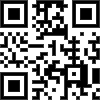ALTERNATIVE ASSESSMENT DURING THE PANDEMIC: TEACHERS OF ENGLISH PERSPECTIVE
DOI:
https://doi.org/10.30888/2663-5712.2021-09-02-039Keywords:
Alternative assessment, the pandemic, teachers of English, rubricsAbstract
Alternative assessment as a formative type of assessing students’ progress and achievements is a tool to achieve the 21st-century learning goals. The authors’ purpose is to provide the readers with the analysis of alternative assessment approaches and getReferences
Gordon, E. W., & Rajagopalan, K. (2016). The Gordon Commission and a Vision for the Future of Assessment in Education. The Testing and Learning Revolution, 1–8. doi:10.1057/9781137519962_1
Pellegrino, J.W., DiBello, L.V., & Brophy, S. (2014). The science and design of assessment in engineering education. In A. Johri & B. Olds (Eds.), Cambridge handbook of engineering education research, 571–598. Cambridge, England: Cambridge University Press.
Etedali, M. M. (2021). Digital Identity and Teachers’ Roles: A Post-COVID-19 Vision. Academia Letters. doi:10.20935/al1791
Al-Mahrooqi, R., & Denman, C. (2018). Alternative Assessment. The TESOL Encyclopedia of English Language Teaching, 1–6. doi:10.1002/9781118784235.eelt0325
Rousseau, P. (2018). Best practices in Alternative Assessments. Ryerson University, the Learning & Teaching Office. Retrieved 03 September 2021 from: https://www.ryerson.ca/content/dam/learning-teaching/teaching-resources/assessment/alternative-assessments.pdf
Banta, T. W., & Palomba, C. A. (2015). Assessment essentials: planning, implementing and improving assessment in higher education. San Francisco, CA: Jossey-Bass.
Brookhart, S.M. (2013). How to create and use rubrics for formative assessment and grading. Alexandria, VA: Association for Supervision & Curriculum Development, 15–22.
Al-Abdullatif, A. M. (2020). Alternative Assessment Approaches and Quality Product Design Within Web-Based Learning Environments. International Journal of Web-Based Learning and Teaching Technologies, 15(3), 60–74. doi: 10.4018/ijwltt.20200701.oa1
Chugai, O., & Ogienko, O. (2021). Teaching Technical English: Corrective Feedback Based on Students’ and Teachers’ Beliefs. MUSE, Volume 8, Number 1, 1–12. https://doi.org/10.4995/muse.2021.14016.
Kırıkkaya, E. B., Bozkurt, E., İşeri, Ş., Vurkaya, G., & Bali, G. (2011). Tübitak supported science summer school for primary school students: happiness of learning by exploring and enjoying. Procedia - Social and Behavioral Sciences, 15, 2219–2227. doi: 10.1016/j.sbspro.2011.04.083
Sa’diyah, A. (2020). Alternative Assessment Practices and Difficulties on EFL Students’ Speaking Skill. Proceedings of the International Joint Conference on Arts and Humanities (IJCAH 2020). doi:10.2991/assehr.k.201201.134
Downloads
Published
How to Cite
Issue
Section
License
Copyright (c) 2021 Authors

This work is licensed under a Creative Commons Attribution 4.0 International License.





